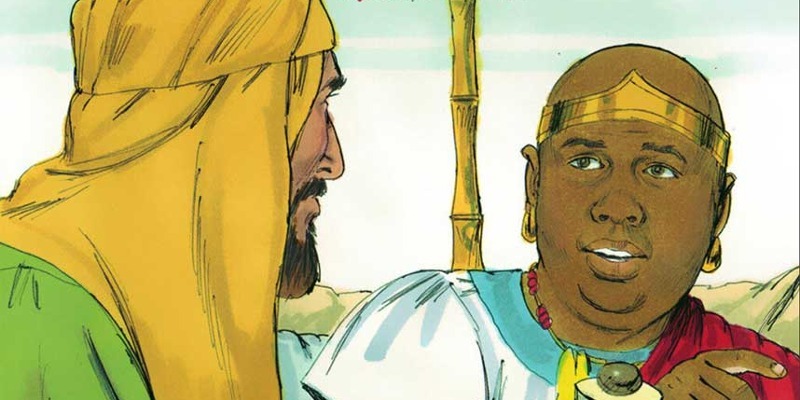An Unlikely Encounter

I've been struck recently by the unusual story recounted in Acts 8:26-40, about Philip the apostle and the Ethiopian Eunuch. Two completely different people brought together in a divine encounter on a dusty road to Gaza. God clearly orchestrates this meeting and sends an angel to Philip, 100 miles away to go to this desert road. His obedience brings about the Ethiopian's belief in Jesus Christ and immediate baptism! It's a really encouraging passage in helping us see how God brings together people who are searching for Him with believers... if we are open to sharing the good news of Jesus.
Now although we don't know much about the man described as an Ethiopian Eunuch, we do know that he was 'an important official in charge of all the treasury' of the Ethiopian Queen. He was the Chancellor of the Exchequer of his day - powerful and rich - travelling in a chariot 1,000 miles from Northern Africa to the capital city of the Jewish world to worship. So he was either a Jew or a Jewish convert, but I think the most important thing we know about him is that he was seeking. He had a spirituality - and is on a spiritual quest - studying a scroll of Isaiah, presumably which he bought in Jerusalem.
What I find amazing is that when Philip meets him, the Ethiopian is studying quite an obscure part of Isaiah 53: 'He was led like a lamb to the slaughter, and as a lamb before the shearer is silent, so he did not open his mouth.' He quite rightly asks Philip 'who is the prophet talking about, himself or someone else?' He wants to know who this person obediently led to death is. And that's where Philip explains the 'good news about Jesus'.
It seems so straightforward doesn't it? Evangelism made easy. And although we can't predict how people will respond to us sharing our faith in Jesus, what we can do is not shy away from unlikely encounters with people. It's so easy for us to stick to talking to people we know, go about our lives in the same pattern, not being open to the Holy Spirit guiding us to people who might be searching, just like the Ethiopian. Who knows who has spiritual questions that we might cross paths with on the bus, on our commute, at work or in a café. Being open and obedient is key in sharing our faith.
The other quality Philip shows aside from obedience is his ability to explain what the good news about Jesus really is. I don't know about you, but sometimes I complicate my faith, and doubts or confusion prevent me from being able to share in simple terms what Jesus's death and resurrection 2000 years ago means for us today.
Humans have the capacity to create and experience absolute beauty (being made in the image of God), but at the same time the disastrous capacity to break things. There's a rage inside each of us if we choose to admit it, as uncomfortable as that might be. This beauty and brokenness we like to think is out there in others - in politicians, in societal structures and systems - but really it's in all of our human hearts.
But the good news Jesus brings is that He sees it all. He sees our aspirations and our failures. And all the pain, guilt and shame we experience was taken on by Him on the cross. As Isaiah 53 v 5 puts it: 'He was pierced for our transgressions and crushed for our iniquities'. His 'punishment... brought us peace'. This is the simple gospel truth we can share with anyone who is seeking - that the God we know obediently suffered a death and 'by his wounds we are healed'.
God chose to reach out to us. That is always His posture. He reached out in becoming a human and continues to reach out through his Holy Spirit today. Will we reach out to others, as unlikely as they may be, just as Philip did all those years ago?
Susie Peters, 28/09/2023